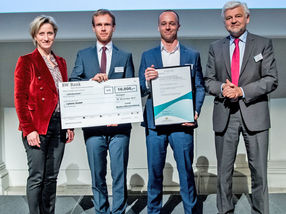BIO Urges EPA to Fully Consider Impacts of Renewable Fuel Standard Waiver Requests
The Renewable Fuel Standard provides the fundamental foundation driving private investment in America’s advanced biofuels industry. The biotechnology Industry Organization (BIO) responded to formal requests by Gov. Bev Perdue (D-N.C.) and Gov. Mike Beebe (D-Ark.) that the Environmental Protection Agency waive the Renewable Fuel Standard for 2012.
Brent Erickson, executive vice president of BIO’s Industrial & Environmental Section, stated, “Companies across the United States have made substantial long-term investments in bringing advanced biofuel research and development to the point where it is beginning to make real contributions to U.S. energy security. These advanced biofuel and biotechnology companies rely on the federal Renewable Fuel Standard to guarantee that the U.S. fuel market will be open to domestic alternatives to foreign oil.
“The United States is at a critical juncture in the development of advanced biofuels. The first commercial gallons of cellulosic biofuels were produced this year and the first large-scale biorefineries are set to begin production soon, adding to those gallons. Additional large-scale biorefineries are under construction, planning to begin production over the next few years.
“The RFS is a complex policy, but it provides multiple options to the fuel distributors obligated to make alternatives to foreign oil available to U.S. consumers. A change to the policy in any given year will impact the production and use of renewable fuels for multiple years, which can disrupt the progress that has been made in advanced biofuels. A closing of the market for alternative fuels will chill investments in advanced biofuels.
“While not the largest industry in any state, the advanced biofuel industry is creating jobs and new economic growth opportunities within North Carolina, Arkansas, Maryland, Delaware and nearly every other state. The potential for additional job creation and rural economic development from advanced biofuel production remain strong, as long as the RFS remains stable.
“A waiver of the RFS is unlikely to provide relief from this year’s drought. But it could extend by several years the drought in investment capital for new technologies such as advanced biofuels.”
Adam Monroe, President of Novozymes North America and chairman of BIO’s Industrial & Environmental Section Governing Board, added, “Novozymes has its North American headquarters and hundreds of employees in North Carolina. Everyone agrees that the drought is one of the worst weather events to impact U.S. farmers in decades. But this choice is the wrong path. All it’s doing is adding to the fear and public misconception about U.S. energy.
“The Renewable Fuel Standard has encouraged farmers to increase the amount of corn for feed, food and domestically made fuel in the U.S. – and it’s now leading to advanced biofuels from agricultural waste and even household trash. It’s created thousands of jobs – from scientists, engineers and factory operators to construction workers and farmers – allowing people to support their families and the country. And it’s bipartisan, first signed by President George W. Bush and still supported today.”
Other news from the department politics & laws

Get the life science industry in your inbox
By submitting this form you agree that LUMITOS AG will send you the newsletter(s) selected above by email. Your data will not be passed on to third parties. Your data will be stored and processed in accordance with our data protection regulations. LUMITOS may contact you by email for the purpose of advertising or market and opinion surveys. You can revoke your consent at any time without giving reasons to LUMITOS AG, Ernst-Augustin-Str. 2, 12489 Berlin, Germany or by e-mail at revoke@lumitos.com with effect for the future. In addition, each email contains a link to unsubscribe from the corresponding newsletter.



















































